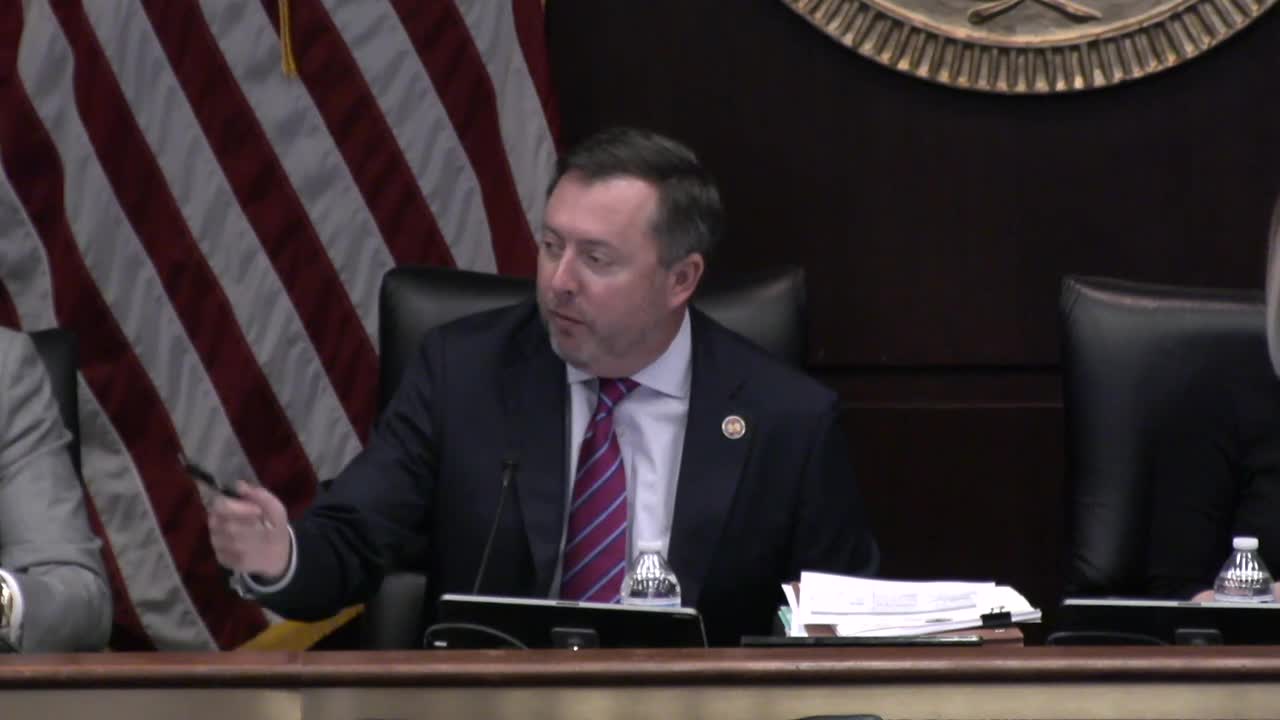South Carolina subcommittee hears hours of testimony on HB 3457, the Human Life Protection Act; no vote taken
Get AI-powered insights, summaries, and transcripts
Subscribe
Summary
A House constitutional law subcommittee took public testimony on House Bill 34‑57, the proposed near‑total abortion ban known as the Human Life Protection Act. Dozens of speakers — including physicians, clergy, survivors and the bill sponsor — testified for and against the measure. Committee members did not take a formal vote at the hearing.
Columbia, S.C. — The House Constitutional Law Subcommittee heard more than three hours of public testimony Monday on House Bill 34‑57, the Human Life Protection Act, a proposed near‑total ban on abortion in South Carolina, but did not take a committee vote.
The hearing, chaired by Jay Jordan, chairman of the subcommittee, drew scores of speakers from across the state. Representative John McCravey, the bill’s primary sponsor, closed the public‑testimony portion by urging the committee to advance the measure. “This bill basically recognizes that life begins at conception and protects the baby in the womb,” McCravey said near the end of the session.
Supporters and opponents delivered strongly held, often emotional testimony. Supporters argued the bill would protect unborn children and cited existing state statutes they said were insufficient. Opponents — including practicing obstetricians and pediatricians, nurses, clergy, and survivors of assault — said the bill as drafted would endanger pregnant people’s health, limit medical judgment, and worsen the state’s shortage of obstetric providers.
Why it matters: Committee members said the hearing was intended to gather constituent input; no formal action was taken. The bill, if advanced out of committee and passed by the General Assembly, would change the legal landscape for reproductive health care in South Carolina and could affect availability of clinical services, medical training and maternal‑health outcomes.
Key testimony and issues
- Medical community concerns: Several physicians, including Dr. Martha Edwards, president of the South Carolina chapter of the American Academy of Pediatrics, and Dr. Tricia Seal, chair of the South Carolina section of the American College of Obstetricians and Gynecologists (ACOG), opposed the bill. They warned that restrictive abortion laws have led to delays in care, departures of OBGYNs from states with bans, and higher maternal and infant morbidity. “We do not wait nor should we have to wait for our patients to become more ill before we intervene to take care of them,” Dr. Seal told the panel.
- Workforce impacts: Multiple OBGYNs and residency physicians said the bill would worsen an existing provider shortage. Dr. Seal said South Carolina lost 4% of its OB‑GYN workforce over the prior 21 months; she and other speakers cited states where bans led physicians to leave or retire early.
- Fatal fetal anomaly and medical decision‑making: Maternal‑fetal medicine specialists described cases in which families face lethal fetal diagnoses and must choose between expectant management and termination. “A law that takes away the option of termination of pregnancy ... will not reduce suffering,” said Dr. Casey Eichelberger, a maternal‑fetal medicine physician.
- Exceptions, IVF and contraception: Sponsor McCravey insisted the bill preserves existing law for contraception and in vitro fertilization (IVF) and includes what he described as “bright line” medical exceptions, and said legislators worked with obstetricians while drafting the text. Several opponents disputed whether the bill’s language would operate as intended in clinical practice and warned that vague or criminal penalties would chill standard care.
- Personal testimony and public impact: Dozens of residents described personal experiences — survivors of sexual assault, parents who had sought terminations for lethal fetal anomalies, infertility patients who rely on IVF, and healthcare workers concerned about patient safety. For example, Lacey Lane described choosing a second‑trimester termination after receiving a diagnosis of a severe neural tube defect and said she would not want to be forced to carry that pregnancy. Tori Nardone and her mother recounted traveling out of state for care after a prenatal diagnosis.
Hearing logistics and next steps
Chairman Jay Jordan opened the hearing by noting the committee had received “over 600 emails and 80 calls” on the legislation and set a three‑minute limit for public testimony to allow more speakers to be heard. Representative McCravey, the sponsor, concluded the public‑testimony portion by asking the committee to advance the bill; the chairman told the room his intention for the day was to gather testimony and said he did not intend to advance the bill during the session.
No motions or votes on the bill were recorded during the hearing. The subcommittee adjourned without a formal recommendation; members encouraged submission of written comments to the committee email address for consideration.
Ending
The subcommittee took testimony but did not act on House Bill 34‑57 during Monday’s session. Representative McCravey asked members to advance the measure; committee members signaled they will continue to consider constituent testimony and written comments as the bill moves through the legislative process.
